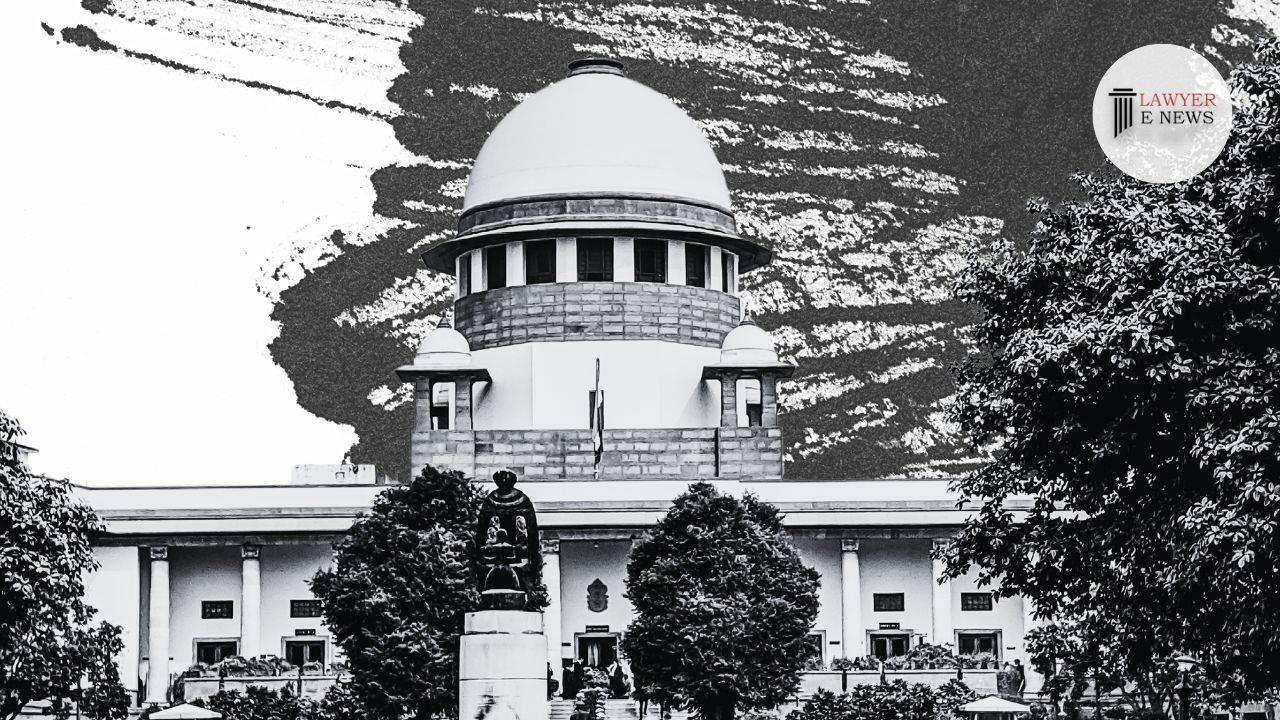-
by Admin
15 February 2026 5:35 AM



Supreme Court of Indiadelivered a judgment dismissing a batch of appeals filed by rice millers challenging recovery proceedings initiated by the Bihar State Food and Civil Supplies Corporation under the Bihar and Orissa Public Demands Recovery Act, 1914. The case involved the recovery of dues for undelivered Custom Milled Rice (CMR) under agreements between rice millers and the Corporation for the procurement year 2011–2012.
The Court upheld that the cost of undelivered CMR qualifies as a "public demand" under Section 3(6) of the Act, read with Clause 8-A of Schedule I, and validated the recovery initiated by the Corporation. The judgment emphasized that the Civil Supplies Corporation acted as the nodal agency of the State Government, and the recovery served the public interest by ensuring the proper functioning of the State’s procurement and Public Distribution System (PDS).
The dispute originated from the Bihar Government’s policy for procuring Custom Milled Rice (CMR) during 2011–2012. Under the policy, the Civil Supplies Corporation procured paddy from farmers and transferred it to rice millers for milling. The millers were contractually obligated to deliver 67% of raw rice or 68% of parboiled rice to designated warehouses. Several rice millers, however, failed to deliver the required quantities of rice, prompting the Civil Supplies Corporation to initiate recovery proceedings under the Bihar and Orissa Public Demands Recovery Act, 1914.
The rice millers challenged the recovery proceedings before the Patna High Court, arguing that the sums claimed did not qualify as a "public demand" and that the Corporation lacked jurisdiction to initiate proceedings under the Act. While the High Court initially set aside the recovery, a Division Bench later reversed this decision, prompting the millers to appeal to the Supreme Court.
The Supreme Court was tasked with addressing the following key issues:
Whether the recovery of dues for undelivered CMR qualifies as a "public demand" under Section 3(6) of the Act.
Whether the Civil Supplies Corporation, acting as the nodal agency of the State, had
Whether the procedural safeguards under the Act, including adherence to natural justice principles, were followed.
Whether the rice millers could avail statutory remedies under the Act.
The Court ruled that the cost of undelivered CMR qualifies as a "public demand" under Section 3(6), read with Clause 8-A of Schedule I. The provision defines public demand broadly to include arrears owed to the State or its nodal agencies for public purposes. In this case, the Civil Supplies Corporation acted on behalf of the State to procure and distribute rice under the PDS.
The Court clarified that the term "public demand" is not limited to tax or revenue arrears but includes amounts due under contracts tied to public welfare schemes. It referred to the Full Bench decision of the Patna High Court in Ram Chandra Singh v. State of Bihar (2003), which emphasized the wide ambit of "public demand" under the Act.
The Court upheld the Civil Supplies Corporation’s authority to recover dues as a nodal agency implementing the State’s procurement policy. The Corporation purchased paddy with State funds, facilitated milling by rice millers, and ensured delivery of rice to the Food Corporation of India (FCI) for the PDS. The millers’ failure to deliver CMR constituted a breach of public obligations, justifying recovery as a public demand.
The Court rejected the argument that the Corporation was acting independently of the State, emphasizing that its role was integral to the State’s public procurement scheme.
The Court dismissed claims of procedural violations, finding that the recovery proceedings complied with the provisions of the Act. It noted that the millers were given adequate opportunities to object and present their case before the Certificate Officers. Further, the Act provides multiple statutory remedies, including appeals, revisions, and reviews, which the millers failed to exhaust.
To ensure fairness, the Court granted the rice millers a 30-day extension to pursue statutory remedies under the Act, including appeals or revisions, and directed the authorities to waive any bar of limitation.
The Supreme Court’s decision reaffirms the expansive scope of "public demand" under the Bihar and Orissa Public Demands Recovery Act, 1914. It underscores the authority of nodal agencies like the Civil Supplies Corporation to initiate recovery proceedings for amounts tied to public welfare schemes. The judgment also highlights the importance of exhausting statutory remedies before seeking judicial intervention.
The appeals were dismissed, and the recovery proceedings initiated by the Corporation were upheld. By granting additional time for statutory remedies, the Court balanced procedural strictness with equity, ensuring justice for both parties.
Date of Decision: December 18, 2024
